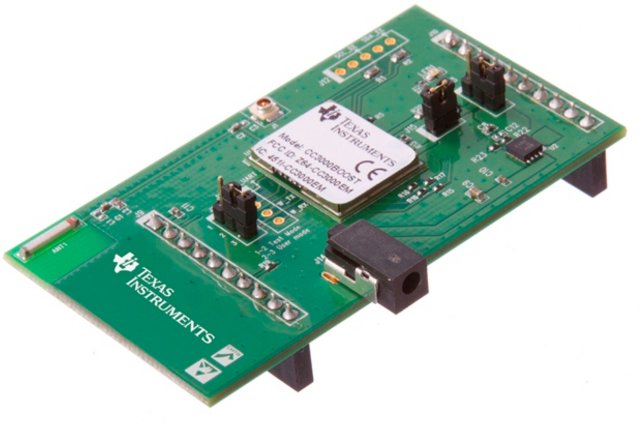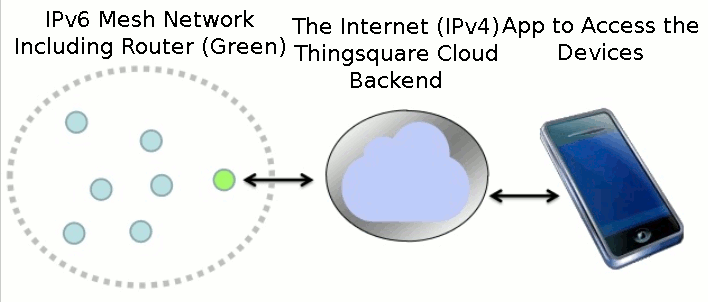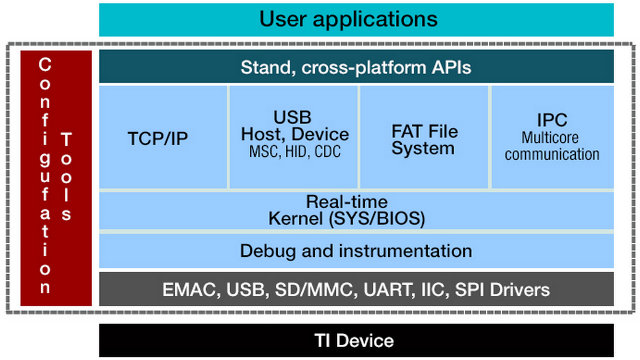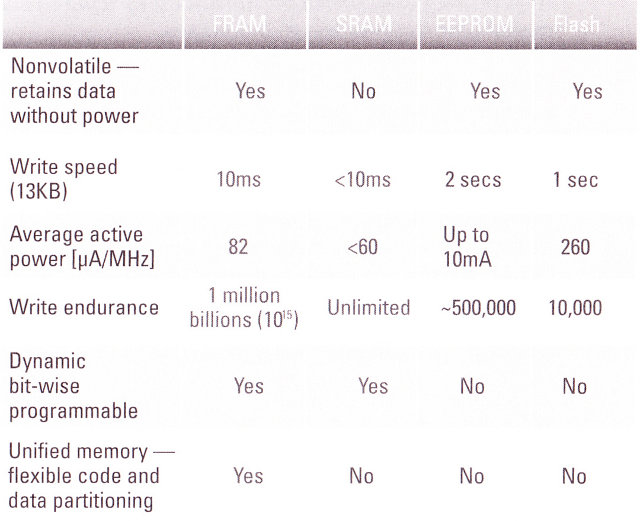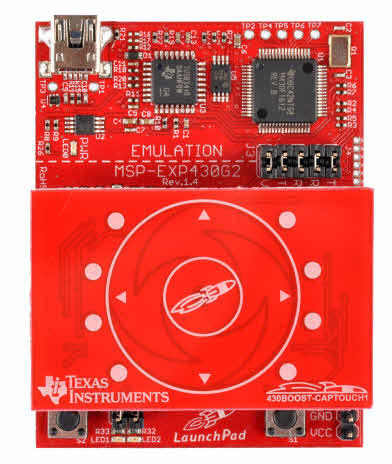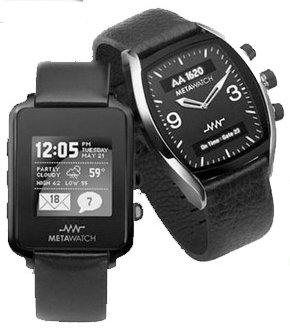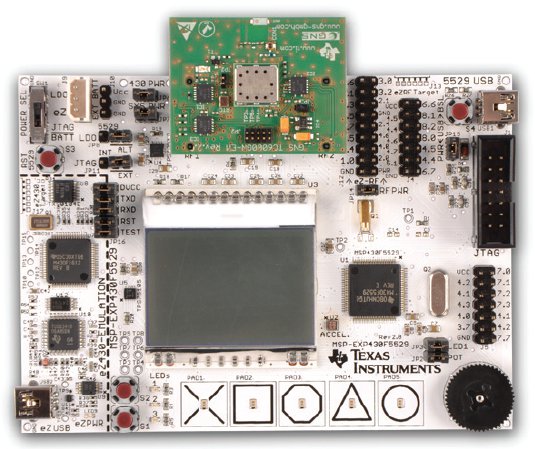Texas Instrument launched SimpleLink Wi-Fi CC3000 in Q1 2012 in order to bring WiFi connectivity to any device including 8-bit or 16-bit MCU, as CC3300 internally handled all networking tasks, and exchange data with the MCU via an SPI interface. This Wi-Fi processor allows to use Wi-Fi for data transmission for the Internet of Things, and offers much better battery than other system relying on software to handle network traffic. Today, the company has just announced SimpleLink Wi-Fi CC3000 BoosterPack, a low cost evaluation platform that works with both MSP430 and Tiva C Series LaunchPad evaluation kits, and sells for $35. SimpleLink Wi-Fi CC3000 BoosterPack features and benefits as seen in the press release: SmartConfig technology: One-step Wi-Fi configuration using smartphones, tablets or PCs Easy network setup for display-less (headless) devices Simultaneous multiple device provisioning iOS, Android and Java sample applications available Royalty-free software Flexible memory size – Small memory foot print […]
Thingsquare Mist – Open Source Firmware for The Internet of Things
Thingsquare recently released the source code for the Thingsquare Mist firmware, an ultra lightweight router software (<4 kB memory) for the Internet of Things based on open Internet standards such as IPv6, RPL (Routing Protocol for Lossy networks), and 6lowpan. Thingsquare Mist allows to connect battery-powered wireless micro-controllers to the Internet, and is currently used in applications such as smart light bulbs, connected home appliances, and connected cities. The IPv6 mesh network is composted of nodes with a low power radio that communicate with the Mist router (Green), which in turn connect to the Internet and Thingsquare Cloud backend (Thingsquare Haven) to store the data, and/or receive control commands via Ethernet or Wi-Fi. The end users can then use an App to monitor, and/or control the devices remotely. Thingsquare Mist uses IETF RPL IPv6 mesh routing protocol (pronounced “ripple”) for IPv6 nodes communications. Thingsquare Mist runs on several low-power wireless […]
TI Releases TI-RTOS, a Free Real Time Operating System for MCUs
Texas Instruments announced TI-RTOS, a complete real-time operating system based on a preemptive multithreading kernel for its MCU platforms. TI-RTOSs includes SYS/BIOS real-time kernel and network developer kit (NDK) TCP/IP stack. TI expects this new OS to speed-up software development by eliminating the need to write complex system software such as schedulers, protocol stacks, and low-level drivers. TI-RTOS features and benefits: Complete embedded operating environmentthat provides full middleware and drivers including: Deterministic, real-time multitasking kernel (SYS/BIOS) TCP/IP stack, including network applications USB, EMAC, MMC/SD host and device stacks and class drivers FAT-compatible file system fully integrated with C RTS file I/O functions Ethernet, USB, UART, I2C and SD device drivers Low overhead core-to-core communication mechanism for dual-core devices Ability to move functions between dual core devices to optimize performance by using the same TI-RTOS kernel on both the ARM and C28x DSP cores. Documentation and examples to augment designs, including examples and […]
FRAM (Ferroelectric Random Access Memory) and Texas Instruments MSP430FR57xx MCUs
I’ve recently received a complementary book entitled “Texas Instruments FRAM MCUs for DUMMIES” sent by Mouser, that provides technical and practical information about FRAM (Ferroelectric Random Access Memory) – pronounced F-RAM – and Texas Instruments MSP430FR57xx MCU series which makes use of this relatively new type of memory. FRAM is a non-volatile memory with power and write speed & endurance characteristics that almost matches SRAM capabilities, and leave traditional Flash and EEPROM memory in the dust in terms of performance, as you can see from the table and diagram below. At constant speed, FRAM consumes 250x less than Flash/EEPROM. Please note the FRAM write speed also depends on the MCU used, and a MCU @ 8MHz can write the FRAM @ 1400 kBps (Source: TI). However, you won’t see this type of memory in devices like smartphones anytime soon because the maximum size currently manufactured is 1MB, density is higher […]
Discounted and Free Development Kits by Future Electronics and Texas Instruments
If you have a project in mind, Future Electronics and Texas Instruments are currently offering free development boards and 50% discounts on selected development kits respectively. Future Electronics Boards4Free Initiative In August, Future Electronics will be giving away 5 boards every Wednesday (20 boards in total). Here’s how it works: Every Wednesday at 12 pm EST from August 1 to August 22 Future Electronics will post a board on their Twitter, Facebook and Google+ feeds. Reply to them on Twitter, comment on their post on Facebook or comment on their post on Google+ with your project idea to enter into the contest. Each action counts as on entry, so you can get up to 3 entries Each weekly drawing period begins at 12 pm EST and ends at 12:30 pm EST. (So you’ve just got 30 minutes to enter, unless I missed something) Future Electronics will draw 5 winners and […]
Texas Instruments Launchpad MSP-EXP430G2 & Capacitive Touch Booster
This is a guest post about the low cost Launchpad MCU devkit. This kit was unveiled in 2010, but since I’d never written about this $4.30 development kit previously, I’ve accepted to publish the post below with slight modifications and amendments. You may be itching to get started with a micro-controller based project but held back because of the high cost of the development boards, and the complex nature of tools required. The good news is that Texas Instruments have come up with a development kit – including a board and the required development software tools. This tool is intended for beginners as well as experienced users. In fact, at under $5, the Texas Instruments’ LaunchPad gives you a complete environment in which you can get started with your projects. This LaunchPad Development Kit is a part of the Texas Instruments MSP430 Value Line series of micro-controllers. You can program, […]
Texas Instruments Sells the MetaWatch, A Wearable Bluetooth 2.1 Watch Devkit For $139
I think there is a TI deal about once a month, and today Texas Instruments sells (via Digi-Key) a Pebble Watch clone device similar to Pebble Watch called MetaWatch which is based on TI MSP430 MCU and CC2560 Bluetooth host controller and was released last year. There are two models: Metawatch Analog ($139) Metawatch Digital ($149) Both models regular price is $203. The discounted price also includes free shipping, but you need to follow the instructions carefully. Although the Metawatch is supposed to currently support both Android and iOS, the model sold is the original one that only supports Android. Here are the specs of the digital Model: Compatibility: Most devices with Android OS 2.3 and up. Potentially any programmable device supporting Bluetooth 2.1 and up device with Serial Port Profile (SPP) connectivity. Case / strap: 3 ATM water resistant stainless steel, black or white replaceable genuine leather strap Display: Mirror polymer network […]
TI SimpleLink GPS CC4000 Enables GPS For MCUs
Yesterday, Texas Instruments unveiled the SimpleLink GPS CC4000, a GPS self-contained module that can be interfaced with any MCU or MPU having a UART interface. Due to limited resources of microcontrollers, several GPS features have been implemented in hardware such as the push-to-fix function which can simply be controlled by the MCU via a GPIO to receive National Marena Electronics Association (NMEA) strings containing location, time and velocity information. TI Simplelink GPS CC4000 enables GPS-based applications such as asset tracking, industrial M2M, sports and fitness, and precision timing. It can deliver better than 2.5 meter accuracy and provides pulse-per-second output functions to provide precise location and timing data. It can also automatically reuse previously decoded satellite information thanks to its “watchful-eye” feature in order to deliver fast time to first fix (TTFF) and optimize power consumption. Here are SimpleLink GPS CC4000 key features: Driverless, fully integrated GPS solution which requires […]


